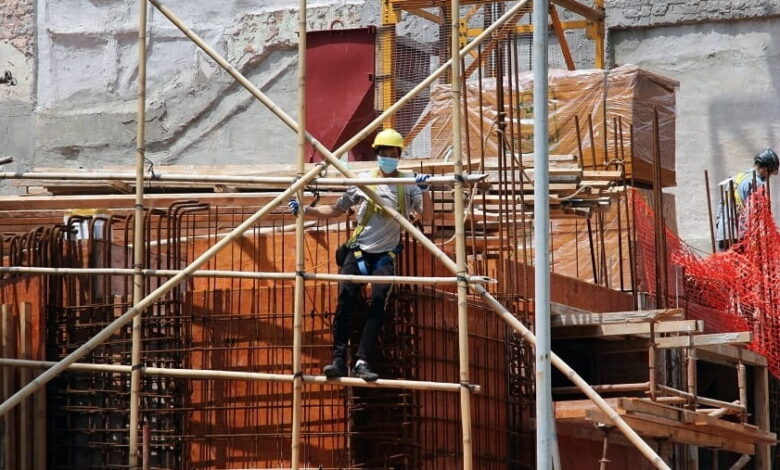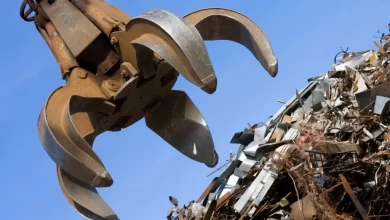COVID-19 Construction Claims – How to Mitigate the Risk?
A Brief Guide to Deal with the Risk of COVID-19 Claims

.The impacts of COVID-19 pandemic have not been limited to the health sector as it has affected all businesses in one way or another. And the construction sector is no exception. The construction industry is very unprecedented and risky in nature. So, the pandemic has wreaked havoc by immobilizing the whole industry within weeks. Therefore, as the economy is slowly opening up, the constrictors and owners must devise a strategy to mitigate the risk of project delays. This will ensure that any party doesn’t get burdened unjustly with risks that they don’t owe.
A Brief Guide to Mitigate the Risk of COVID-19 Construction Claims
In the midst of this pandemic, most of us in the construction industry are wondering who is responsible for these delays. How to mitigate the risk efficiently. If you are working in the construction sector; here is a brief guide to help you reduce the risks associated with COVID-19 claims successfully.
Understand Your Contract
One of the first things you need to consider as a result of an unexpected event like the current pandemic is your contract and its details. Why? Because you need to allocate the risk and determine who is responsible for the damages suffered and delays occurred. Thus, the first thing you need to consult is your contractual details and insurance arguments.
There are two ways the contracts deal with possible risky events or occurrences: Direct approach and Indirect approach.
- Direct Approach
In the direct approach, there are specific contract provisions and clauses that deal with risk. For example, in the case of a pandemic, the contract will include a path to be taken if the event occurs. It will also address issues related to extra time, the cost for delays, suspension of work, and even cancellation of the contract.
- Indirect Approach
In the indirect approach, the contract caters for uncertain events with different provisions like “catch-all” and force majeure clause. For example, most contracts in the construction industry include a “catch-all” clause to address all risk events, and it includes terms like “delays caused by events beyond the control of the contract parties.”
Similarly, force majeure provisions can be used in the event of the current COVID-19 pandemic. This is an important clause for the contractors concerning the allocation of risk between the parties. The force majeure clause “relieves one party from performing contractual obligations under certain circumstances that would make performance impossible, impractical and even illegal.”
Force majeure clause gives the contractor the right to additional time. So, don’t take the risk and make sure to contact construction claims consultants in Dubai to review your contractual details and make sure that all delays as a result of the pandemic are covered.
Record Everything
If you want your delay claims to be successful, you need to be able to show the cause. And the effect of the delay in proof. During the claim, provide evidence of how a specific event has affected a critical activity that has resulted in a project delay. Therefore, it is highly essential to keep records of the cause and effect of the delay.
These records may include the following documentary evidence:
- Documentation providing evidence of the effect of a specific cause (COVID-19) on construction activities. These documents may include daily project reports, emails to the suppliers and clients, meeting records with the sub-contractors and project owners, photographs, videos, material delivery reports, and schedule updates.
- Official government notices that directly impact your construction work – for example, quarantine orders, and official directive to stop all construction work.
- Government notices that indirectly impact your construction work, like social distancing measures.
- Any records of disruption in the supply chain, including delay in delivery of construction material and equipment supply.
- All records and of measures taken to mitigate the risk. All efforts should be documented.
Your project might need further documentary evidence for the claim. So, consider hiring Fractal Expert Services to help you deal with the dispute effectively.
Communicate & Collaborate
In any crisis, be-it construction disputes or delays, collaboration, and communication are vital. The impact of COVID-19 on the construction industry and the economy, in general, is unprecedented. Thus in this challenging time, all parties (owners, contractors, suppliers) need to work together as a team. This is only possible with open communication and collaboration.
Only by communicating regularly with the client and all the parties can you continue working in such conditions and deal with delays and productivity issues. Consider holding weekly meetings on a regular basis to collaborate and discuss the challenges and ways to overcome them. This is the only way to avoid construction claims and litigation in the future.
Protect Yourself Against Litigation!
The COVID-19 pandemic has had disastrous effects on various areas of business, and the construction sector is no exception. With state-emergencies and territorial lockdowns, the industry has faced a serious supply chain disruption causing delays, which ultimately result in litigation and claims. But, you can mitigate the risk ahead of time by following these rules. And protect your business from expensive legal claims that could force a complete shutdown of your company.





